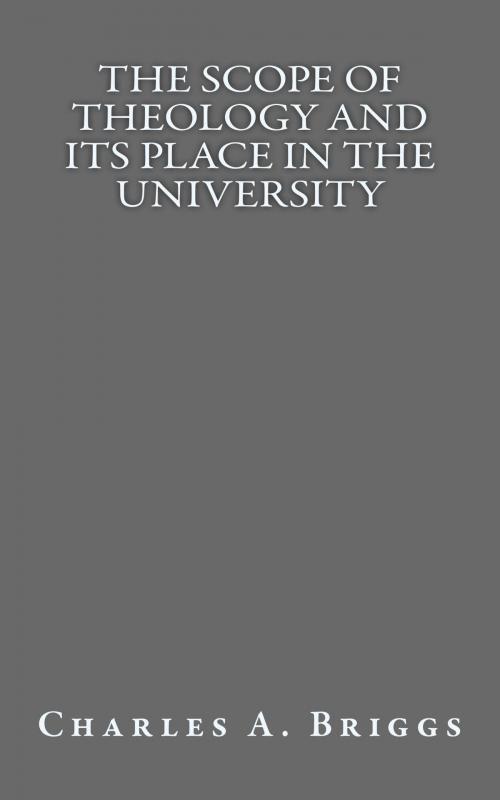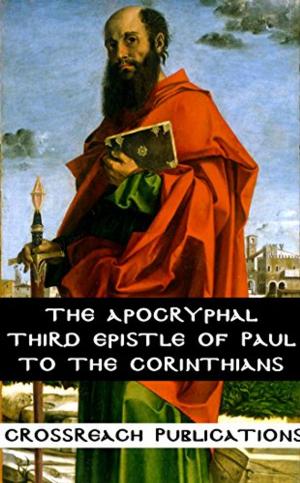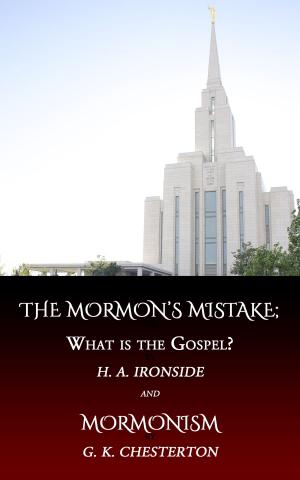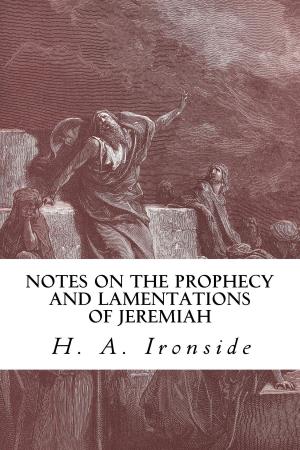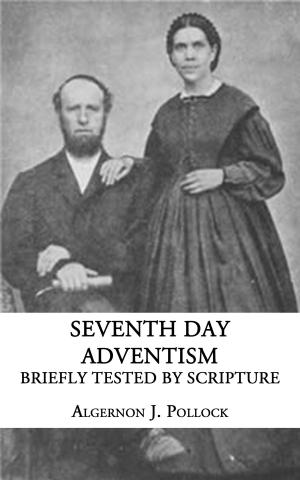| Author: | Charles A. Briggs | ISBN: | 1230001944945 |
| Publisher: | CrossReach Publications | Publication: | September 30, 2017 |
| Imprint: | Language: | English |
| Author: | Charles A. Briggs |
| ISBN: | 1230001944945 |
| Publisher: | CrossReach Publications |
| Publication: | September 30, 2017 |
| Imprint: | |
| Language: | English |
The American colleges have been gradually casting off the bonds of ecclesiasticism and dogmatism which enslaved them to denominationalism and made them the citadels and prisons of sectarianism. The elimination of the theological seminary from the college removed the chief difficulties in the way of the liberation of the college: but at the same time it resulted in increasing the bondage of the theological seminaries; so that these became the strongholds not merely of denominationalism but of schismatic tendencies in the denominations themselves. The theological seminary may gain its freedom either by a gradual appropriation of the spirit and life of the university with which it may be affiliated or by itself throwing off the bondage of denominationalism and sectarianism and becoming a theological university. The former is the easier and simpler method, the latter is the more difficult and complex; but on this very account possibly the more fruitful. If the two methods could combine, the best results would be attained. The theological seminary is entering into closer relations with the university in many of the great cities of our land. These relations are of very great importance both to the university and to the theological school. There are opportunities of mutual helpfulness and also of mutual injury. On the one hand it would be a calamity if any of our great universities should take the theological seminary to its bosom, warm the serpent of sectarianism into new life and give it such an influence in the university body as to again imperil the freedom of the university. The university should guard its freedom by perpetual vigilance lest it again put on the bonds of denominationalism. On the other hand there is peril to the theological seminary lest it merge itself and become lost in the larger life of the university.
The American colleges have been gradually casting off the bonds of ecclesiasticism and dogmatism which enslaved them to denominationalism and made them the citadels and prisons of sectarianism. The elimination of the theological seminary from the college removed the chief difficulties in the way of the liberation of the college: but at the same time it resulted in increasing the bondage of the theological seminaries; so that these became the strongholds not merely of denominationalism but of schismatic tendencies in the denominations themselves. The theological seminary may gain its freedom either by a gradual appropriation of the spirit and life of the university with which it may be affiliated or by itself throwing off the bondage of denominationalism and sectarianism and becoming a theological university. The former is the easier and simpler method, the latter is the more difficult and complex; but on this very account possibly the more fruitful. If the two methods could combine, the best results would be attained. The theological seminary is entering into closer relations with the university in many of the great cities of our land. These relations are of very great importance both to the university and to the theological school. There are opportunities of mutual helpfulness and also of mutual injury. On the one hand it would be a calamity if any of our great universities should take the theological seminary to its bosom, warm the serpent of sectarianism into new life and give it such an influence in the university body as to again imperil the freedom of the university. The university should guard its freedom by perpetual vigilance lest it again put on the bonds of denominationalism. On the other hand there is peril to the theological seminary lest it merge itself and become lost in the larger life of the university.
